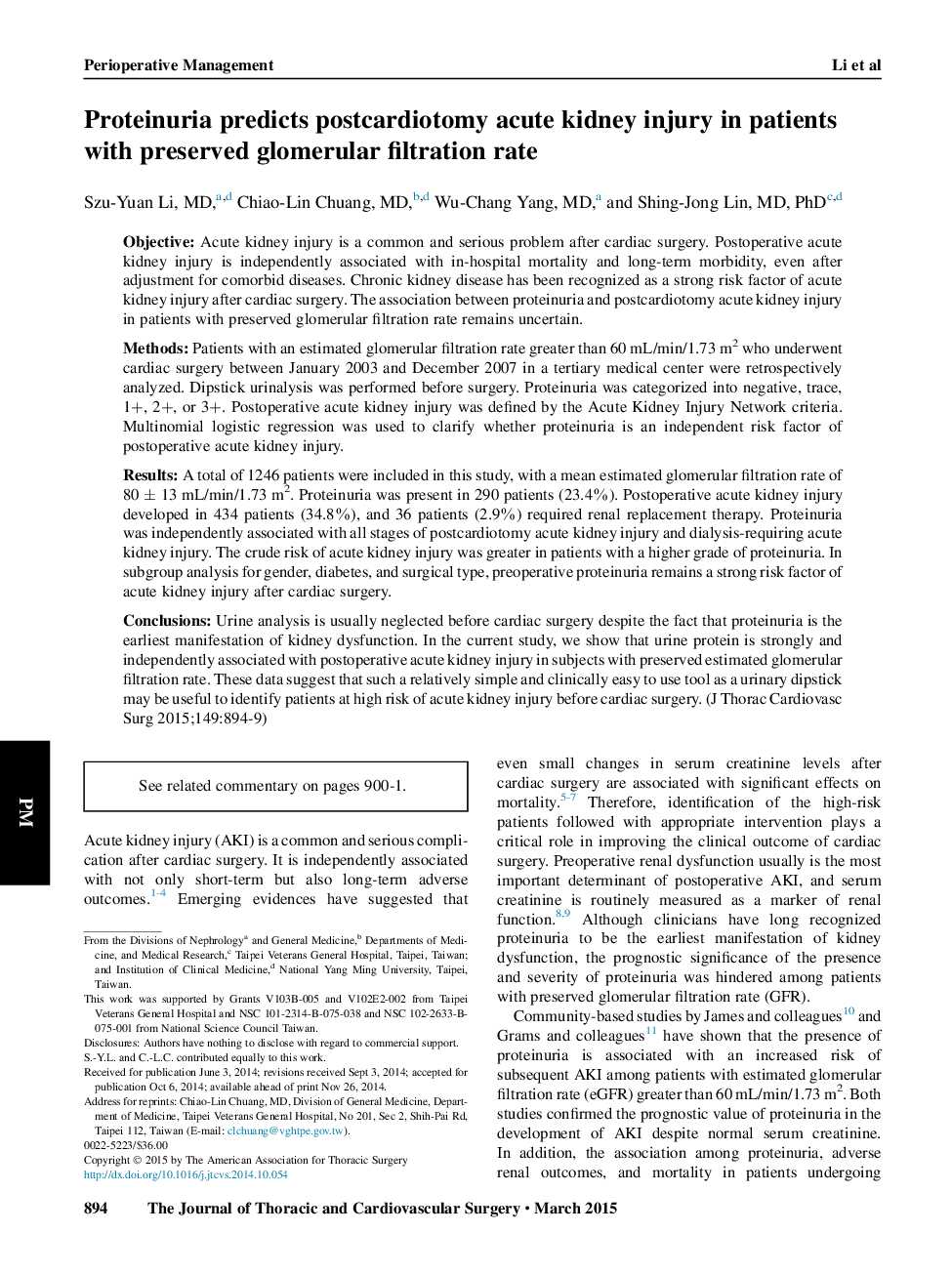| Article ID | Journal | Published Year | Pages | File Type |
|---|---|---|---|---|
| 5988958 | The Journal of Thoracic and Cardiovascular Surgery | 2015 | 6 Pages |
ObjectiveAcute kidney injury is a common and serious problem after cardiac surgery. Postoperative acute kidney injury is independently associated with in-hospital mortality and long-term morbidity, even after adjustment for comorbid diseases. Chronic kidney disease has been recognized as a strong risk factor of acute kidney injury after cardiac surgery. The association between proteinuria and postcardiotomy acute kidney injury in patients with preserved glomerular filtration rate remains uncertain.MethodsPatients with an estimated glomerular filtration rate greater than 60 mL/min/1.73 m2 who underwent cardiac surgery between January 2003 and December 2007 in a tertiary medical center were retrospectively analyzed. Dipstick urinalysis was performed before surgery. Proteinuria was categorized into negative, trace, 1+, 2+, or 3+. Postoperative acute kidney injury was defined by the Acute Kidney Injury Network criteria. Multinomial logistic regression was used to clarify whether proteinuria is an independent risk factor of postoperative acute kidney injury.ResultsA total of 1246 patients were included in this study, with a mean estimated glomerular filtration rate of 80 ± 13 mL/min/1.73 m2. Proteinuria was present in 290 patients (23.4%). Postoperative acute kidney injury developed in 434 patients (34.8%), and 36 patients (2.9%) required renal replacement therapy. Proteinuria was independently associated with all stages of postcardiotomy acute kidney injury and dialysis-requiring acute kidney injury. The crude risk of acute kidney injury was greater in patients with a higher grade of proteinuria. In subgroup analysis for gender, diabetes, and surgical type, preoperative proteinuria remains a strong risk factor of acute kidney injury after cardiac surgery.ConclusionsUrine analysis is usually neglected before cardiac surgery despite the fact that proteinuria is the earliest manifestation of kidney dysfunction. In the current study, we show that urine protein is strongly and independently associated with postoperative acute kidney injury in subjects with preserved estimated glomerular filtration rate. These data suggest that such a relatively simple and clinically easy to use tool as a urinary dipstick may be useful to identify patients at high risk of acute kidney injury before cardiac surgery.
